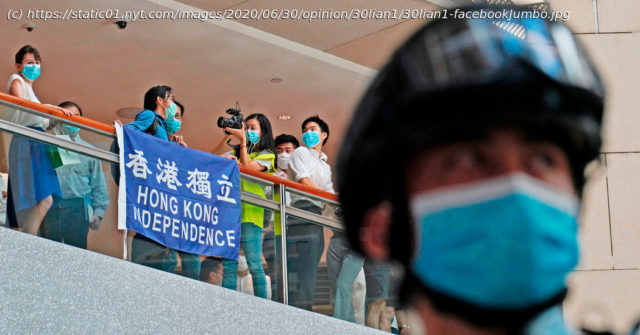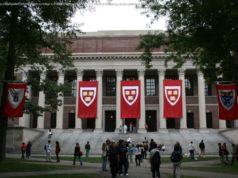It pays to play the long game against people who want to be free.
After many years of rejecting the people of Hong Kong’s persistent demands for genuine universal suffrage and other rights, China made its position clear again on Tuesday with the legislative equivalent of a cracking head bash.
It chose the eve of July 1, a triple anniversary — of the birth of the Chinese Communist Party (1921), the handover of Hong Kong from Britain to China (1997) and a break-in of the city’s legislature by pro-democracy activists (2019) — to pass a draconian national security law that will forever harm Hong Kong’s political freedoms and hobble its economic relations with the rest of the world.
Hong Kong is a special administrative region of China with its own, supposedly independent, executive, legislative and judiciary branches. Yet the new law was proposed in Beijing, drafted in Beijing and promulgated in Beijing.
It went into force as soon as it was gazetted on Tuesday night — which was also the first time its contents were released to the public.
The law criminalizes acts of secession, the subversion of state power, terrorism and “collusion with foreign or external forces to endanger national security.” Some offenses in each of these categories are punishable with life imprisonment. Property damage alone might amount to terrorism.
Especially severe cases may be referred to the Supreme People’s Court of China, to be tried by another court of its choosing under the mainland’s law of criminal procedure, which allows for capital punishment in some cases. The death penalty was abolished in Hong Kong in 1993, and no execution had taken place since 1966.
The new law trumps any local laws that are inconsistent with it. A national security commission will be set up in the city, joined by a Beijing-appointed adviser, to oversee the law’s implementation. Its work will not be made public, nor will that be subject to judicial review.
The Hong Kong chief executive is to appoint special judges to hear national security cases. The city’s Secretary of Justice may deny a defendant a trial by jury. The ultimate power to interpret the law rests with Beijing.
Articles 37 and 38 appear to mean that the law is applicable worldwide — and universally: not only to permanent residents of Hong Kong and entities based in the city while they are abroad, but also to “a person who is not a permanent resident” of Hong Kong who commits an offense from “outside.”
Though the law is being called “national security” legislation, its true, bespoke purpose is to suppress the decades-old pro-democracy movement in the city — which has grown more vocal in recent years as repression from Beijing has increased, with some younger people calling for outright independence for Hong Kong.
Leaders of political organizations that China has previously accused of promoting separatism promptly announced their groups’ dissolution on Tuesday.
Politically astute Hong Kongers are only too aware of the Chinese government’s propensity to bring bogus charges against its political opponents.
So are some foreign governments. Washington had already announced a spate of sanctions against officials deemed to violate the mainland’s obligations to Hong Kong.






